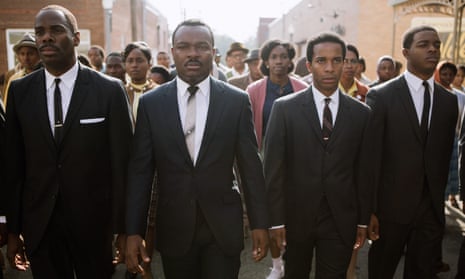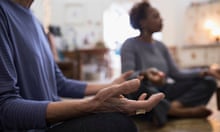“Happiness comes from within,” declare a thousand advice blogs and books, fridge magnets and Facebook memes. Or “withinwards” as my local yoga studio prefers to call it.
The idea that happiness comes from looking inwards rather than outwards has taken a deep hold in our collective psyche in recent years. We no longer see wellbeing as a facet of community or engaging with others but as an inner journey, a self-focused personal quest.
Most of the recent happiness trends, from self-help books to meditation, are designed to be carried out either completely alone, or with the explicit aim that each person stays locked in their own private emotional experience. In the United States this appetite for inner exploration has spawned a multi-billion dollar industry.
Americans spend around $1bn on self-help books each year, and $4bn on mindfulness products and therapies ($12m of this on mindful colouring books alone). A further $10bn a year is spent on yoga classes and accessories. There are now more than 1,000 options for happiness apps to help us find bliss deep within our smartphones. It all adds up to a strange kind of emotional individualism.
But this level of self-focus has come at the expense of outward engagement. Our narrative of wellbeing has become divorced from community, social justice or wider political responsibility.
Even the hugely popular mindfulness trend, which on the face of it advocates paying attention to the outside world, urges it in only its most apolitical form – a “non-judgmental awareness” of whatever is directly in front of us right this second, deliberately renouncing analysis, critical thinking or wider imaginative empathy.
But while we have been locked in this mindful-colouring, downward-dogging bubble, we failed to notice a profound disaffection and rage growing within society. Ignored for so long, this deep-seated discontent found its expression in a dangerous, misogynistic, racist demagogue. Many of us were blindsided by Donald Trump’s recent victory. We were probably at a yoga class.
Even before this toxic election, according to the World Health Organisation, the US was already, by a wide margin, the most anxious country on the planet. Now anxiety levels have skyrocketed. Suicide hotlines across the country have seen sharp increases in call numbers since the election. Therapists report widespread “Trump-anxiety” among their clients.
It would be tempting to see the solution to this outpouring of distress as yet more inner exploration. More mindfulness exercises and yoga classes and digital detoxes, in which we deliberately disengage from the news in service of our own mental health. But that somewhat solipsistic mentality was part of what got us here in the first place. What we urgently need now is not inner exploration, but outward engagement. Not “non-judgmental awareness” but critical thinking.
It would be easy to sell this as a self-help proposition in and of itself. Excessive self-focus has been shown by research to lead to unhappiness, anxiety, loneliness and depression, whereas its opposite, social connection, is overwhelmingly the single biggest source of human happiness. But this is far more important than a self-help mantra. For the sake of the future of the planet, now is the time not to journey “withinwards”, but for vigilance and action.
Ruth Whippman is the author of The Pursuit of Happiness (£9.99, Random House). To buy a copy for £8.19, go to bookshop.theguardian.com










Comments (…)
Sign in or create your Guardian account to join the discussion